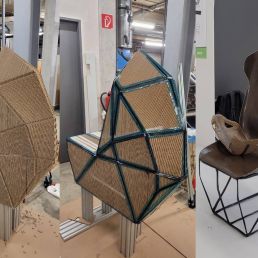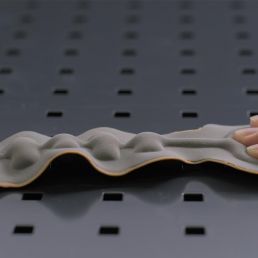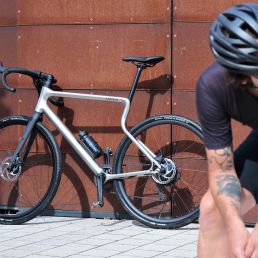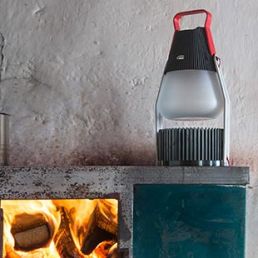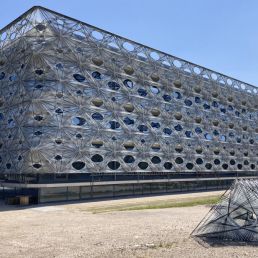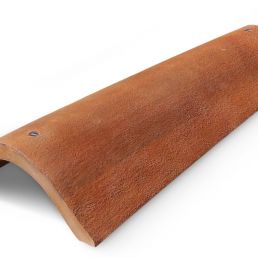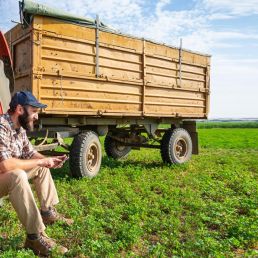
On the way to climate-neutral steel
thyssenkrupp Steel starts production of steels with reduced CO2 intensity
7 October 2021
The steel producer thyssenkrupp has successfully attained a significant milestone along the green transformation path towards
climate-neutral steel. The first batch of steel with reduced CO2 emissions was delivered on October 6, 2021. The customer of flat steel products from the newly created “bluemint steel” brand is the premium bathroom manufacturer Kaldewei from Ahlen.
70 percent less carbon dioxide in production
The approach to reducing the CO2 emissions at the blast furnace, which has been independently assured by the international certification body DNV, allows for the allocation of the carbon emission savings to a specific quantity of the product bluemint pure. The carbon emission intensity per tonne of steel produced is thus reduced by 70 per cent. The benefits that can be achieved using this approach were also confirmed by Wuppertal Institute for Climate, Environment and Energy – thyssenkrupp Steel’s advisor to the project.
bluemint pure has all direct emissions from its production at the Duisburg site neutralized by savings in the production process– the emissions of the so-called upstream chain (Scope 3) are retained. These include all emissions that occur during the production and transportation of the raw materials. In this way, the emission intensity per tonne is reduced by 1.5 tonnes to 0.6 tonnes of CO2 per tonne product, which corresponds to an overall reduction of 70 per cent. This positive effect is achieved through the use of already reduced iron (HBI). This allows for less coal consumption in the reduction process at the blast furnace. This achieves a verifiable reduction of emissions.
The launch of the bluemint product family also marks the start of active marketing measures for products with an allocated low CO2 intensity. Bernhard Osburg, CEO of thyssenkrupp Steel, explains: “It is important that we can provide our customers with products that contribute to real and measurable carbon dioxide reduction as quickly as can be. This is where we start. We are very happy to be supplying our products to Kaldewei, a company that is particularly committed to the idea of sustainability. We will now gradually expand the commercialization of our CO2-reduced bluemint Steel range and have already commenced negotiations with a number of additional customers.”
A second, separate approach towards a CO2-reduced steel production has been taken by thyssenkrupp Steel by obtaining certification from TÜV Süd in accordance with the VERIsteel procedure. This involves the use of scrap in the blast furnace process. This technological change will once again result in an absolute reduction of CO2 emissions at the Duisburg site. This is also achieved through a reduced coal consumption, since correspondingly less coal is needed for melting the scrap in the blast furnace. For each tonne of recycled product, a reduction in emission intensity from 2.1 tonnes to 0.75 tonnes of CO2 is achieved and accounted for on the balance sheet.
The bluemint pure steel now being delivered are part of the comprehensive transformation strategy at thyssenkrupp Steel. The crucial milestone in the transformation of Europe’s largest integrated steel mill towards climate neutrality will be the replacement of the conventional blast furnaces with hydrogen-fuelled direct reduction plants. The commissioning of the first large-scale plant including a melter is planned for 2025.
In the run-up to this technological leap, all possibilities are being exploited to noticeably reduce the CO2 emissions during production already with the existing blast-furnace-based technology. The use of HBI or scrap as carbon-reducing feedstock is the first step. In the future, thyssenkrupp Steel will also expand the use of hydrogen in the blast furnace and thus further increase the production of environmentally friendly steel. The world’s first trials on the use of hydrogen started in Duisburg back in 2019 and have meanwhile been successfully accomplished.
image source: thyssenkrupp steel
Ecoblaq molecular wood colours
23 March 2024
Ecoblaq is a molecule manipulation method, a natural chemical reaction, making…
Natural fiber reinforced car seat
22 October 2023
The focus of the project "Design for Recycling" is a seat shell that is made…
MotorSkins morphing textiles
19 April 2022
Berlin based start-up MotorSkins designs and produces textiles with embedded…
3D Pioneers Challenge 2022
15 December 2021
The 3D Pioneers Challenge 2022 adresses tech pioneers who pave the way for…
IGNIS – Light from waste heat energy
12 August 2020
The availability of affordable, independent and, above all, clean electrical…
Brake disc with reduced fine dust
21 April 2021
Fine dust endangers our health. One of the main sources is traffic, especially…
Texoversum
15 July 2023
With the "Texoversum", Reutlingen University has put into operation a training…
Invisible Terracotta Solar Rooftile
10 May 2023
The family-run business Dyaqua has developed a technology to integrate a…
Xarvio – Digital Farming
8 January 2021
BASF Digital Farming GmbH has received the renowned Crop Science Award for the…

